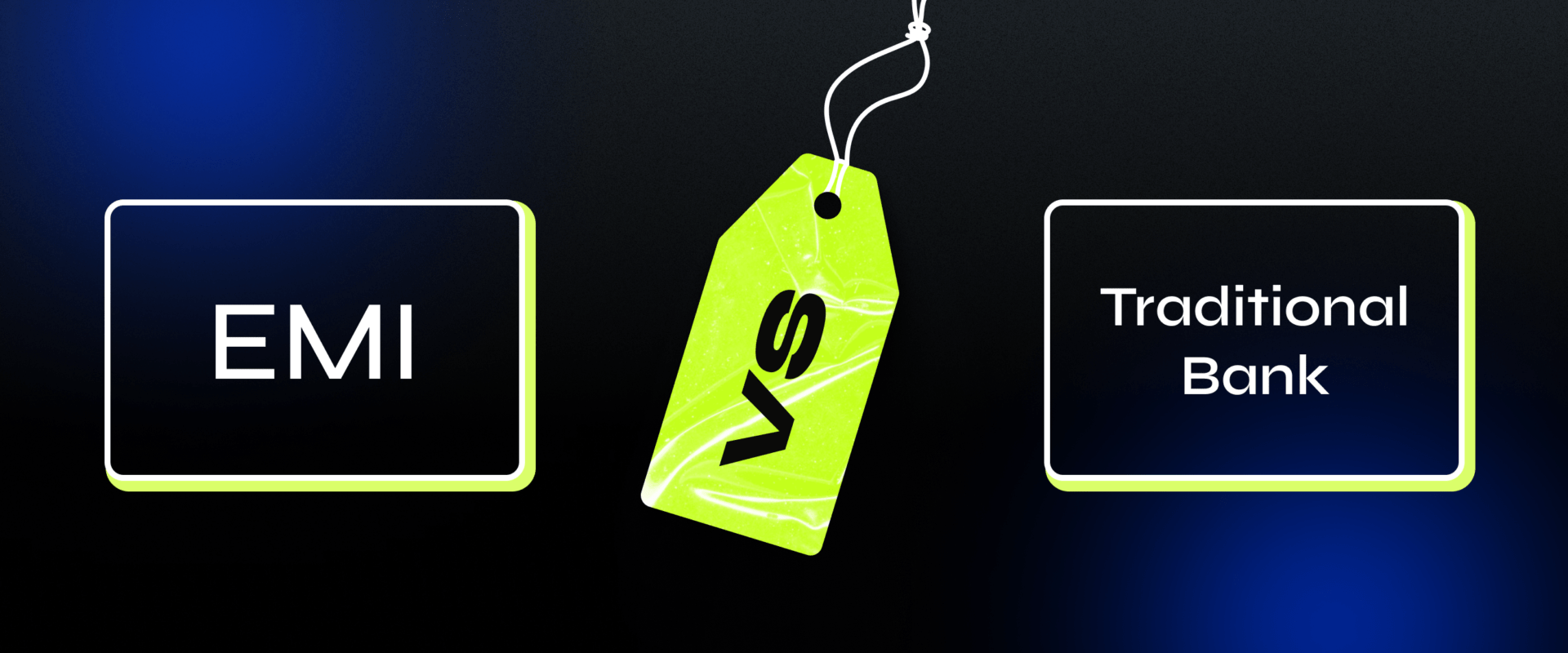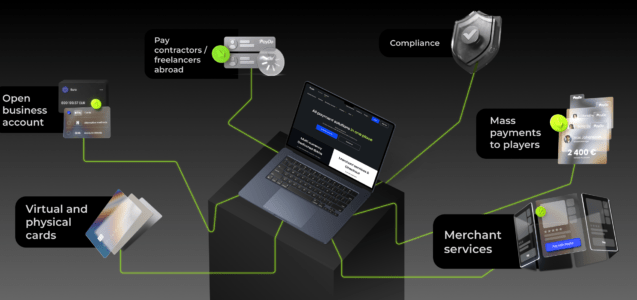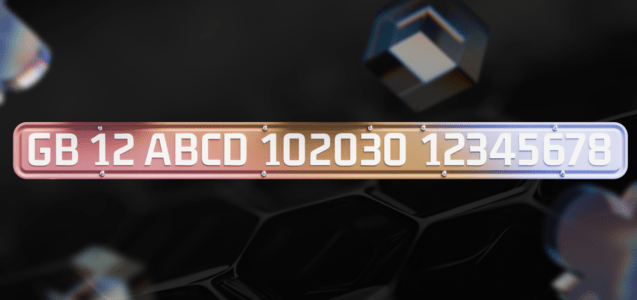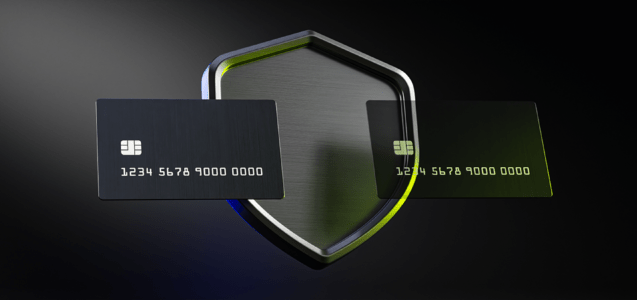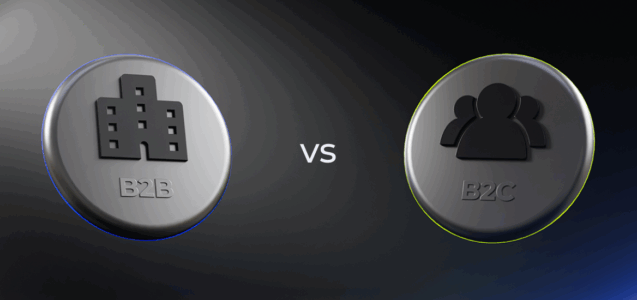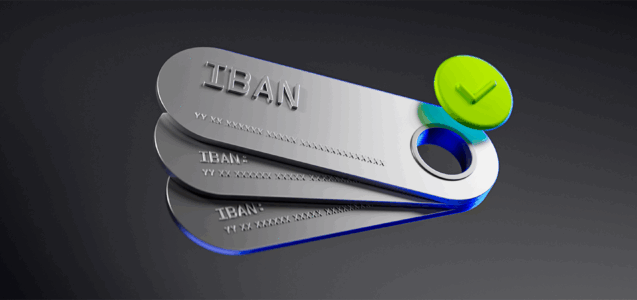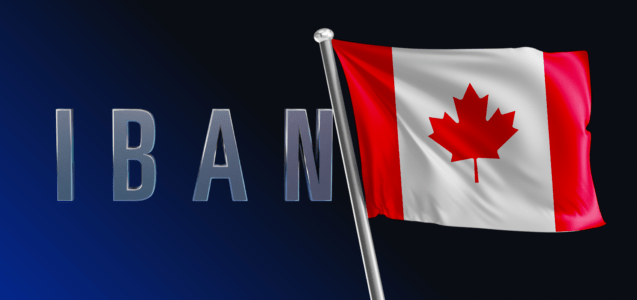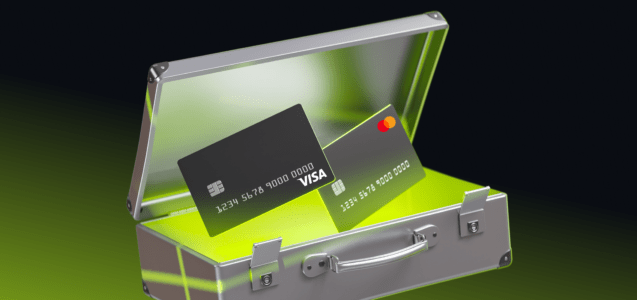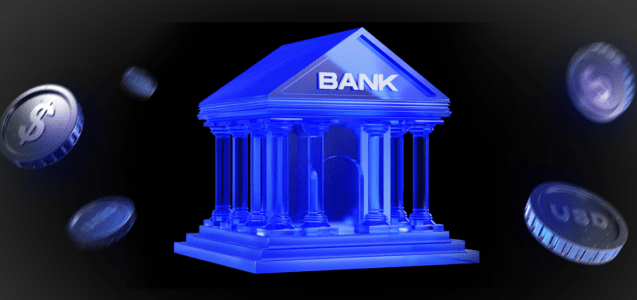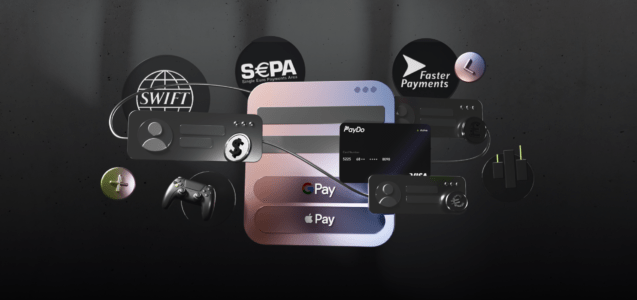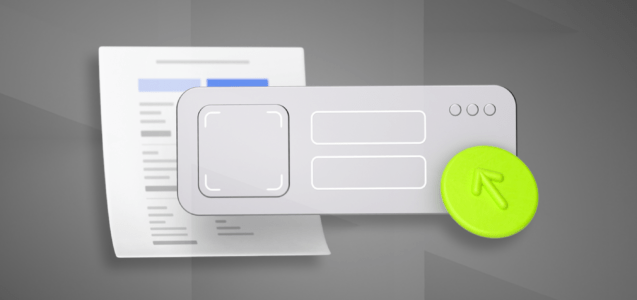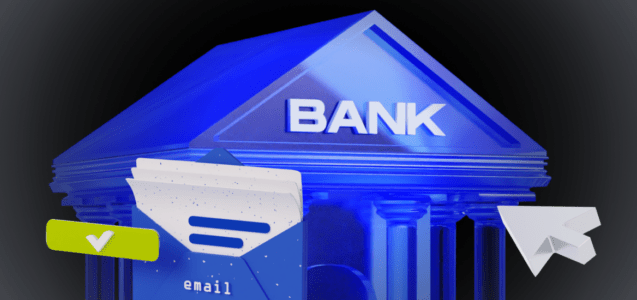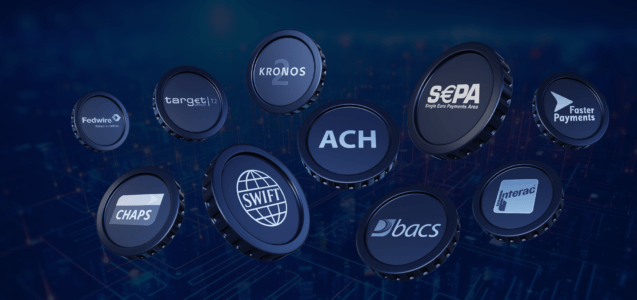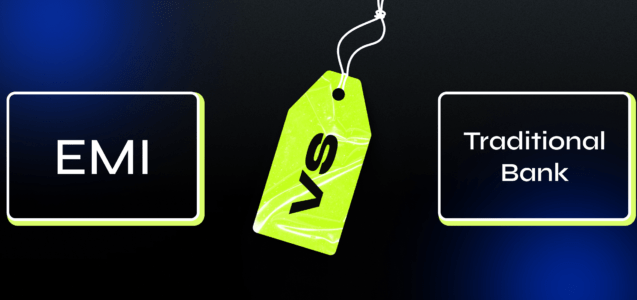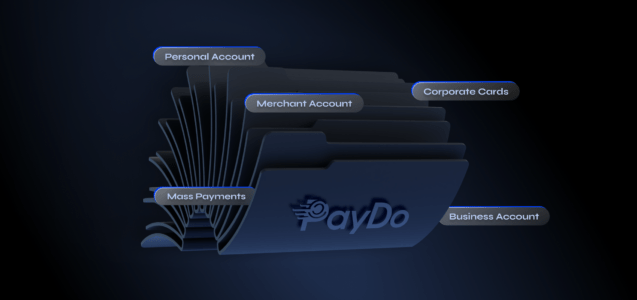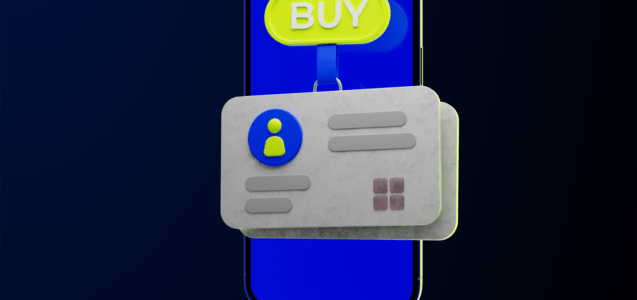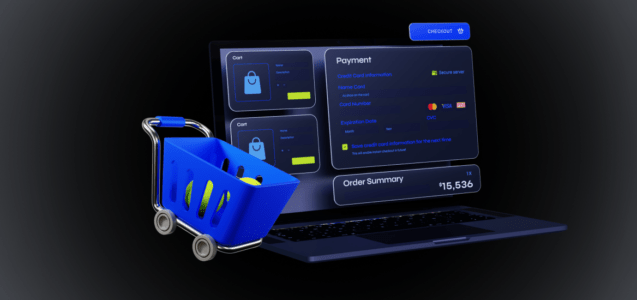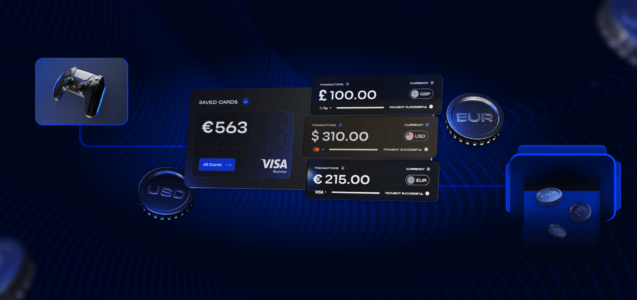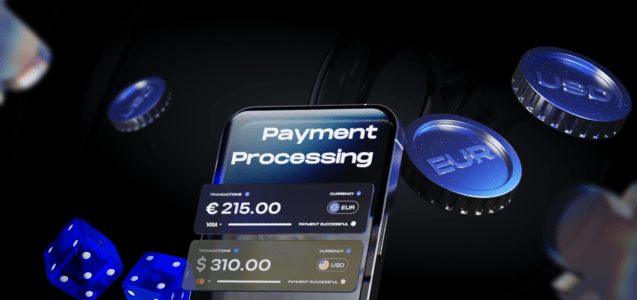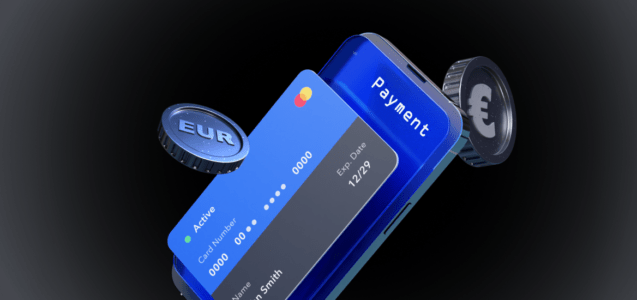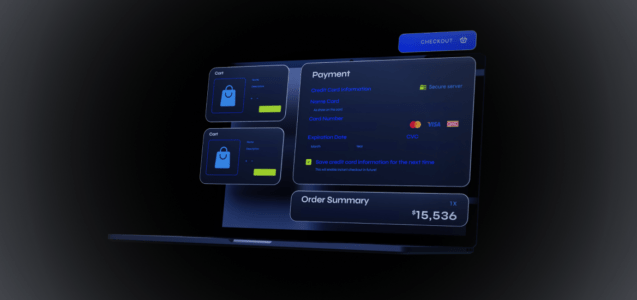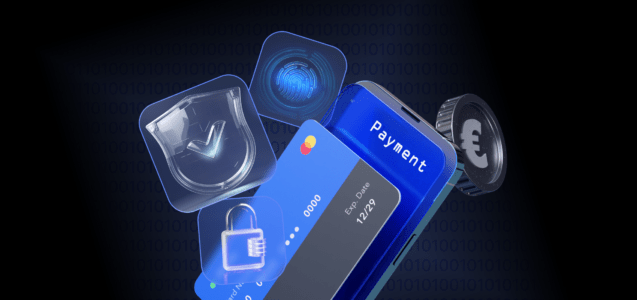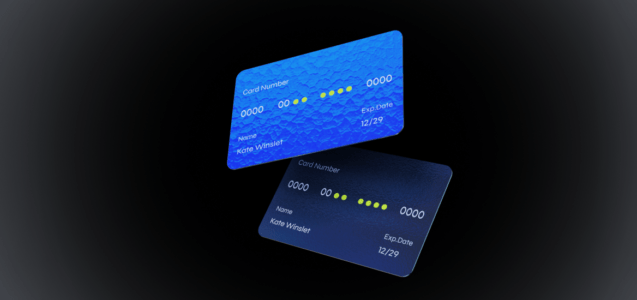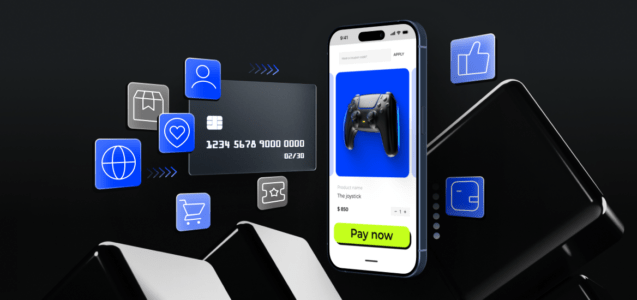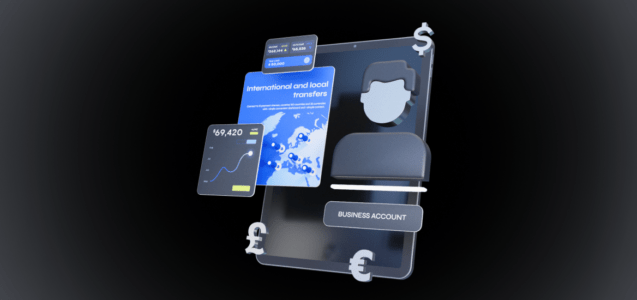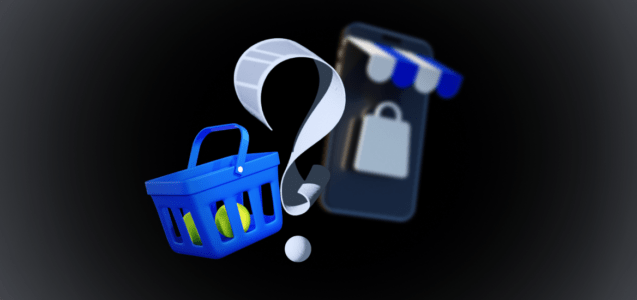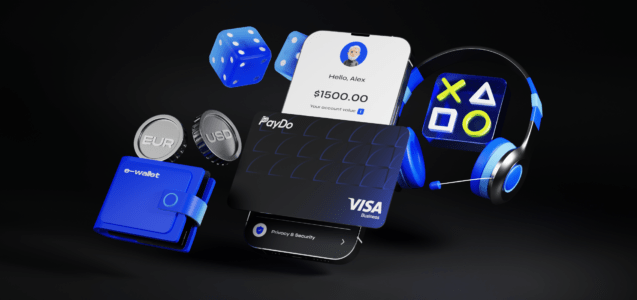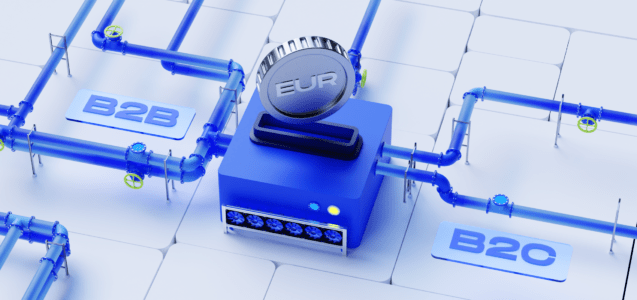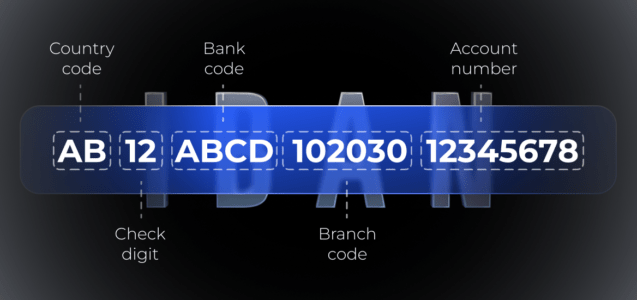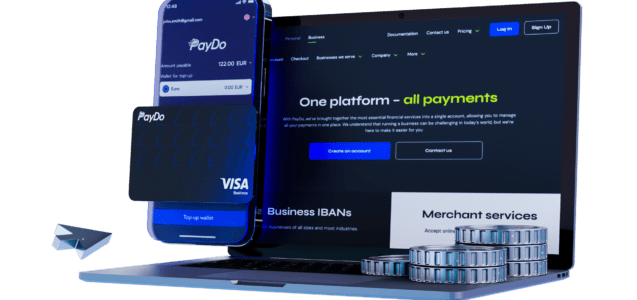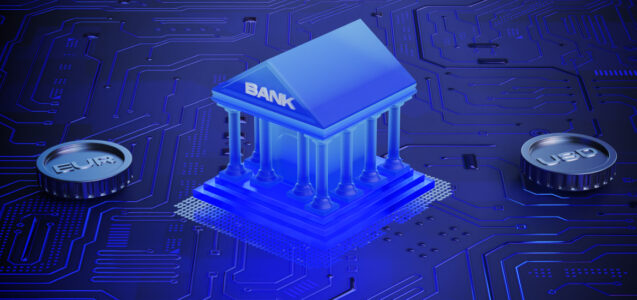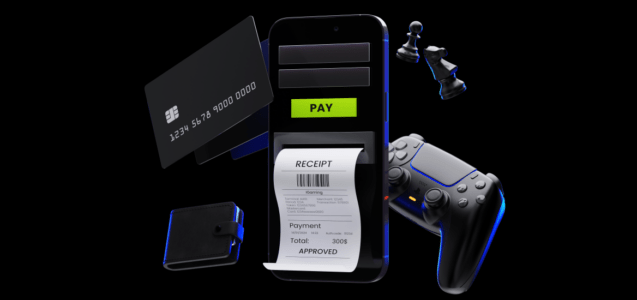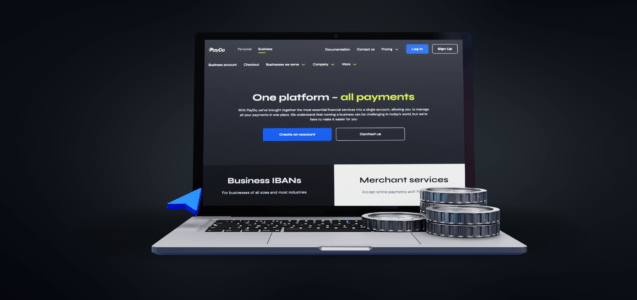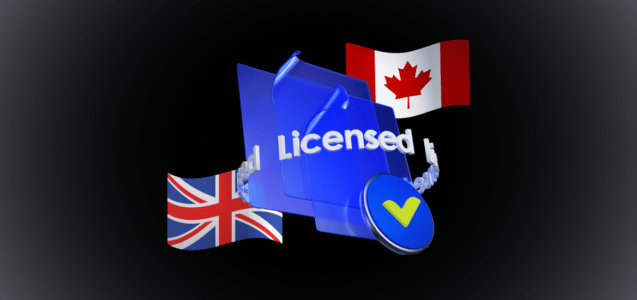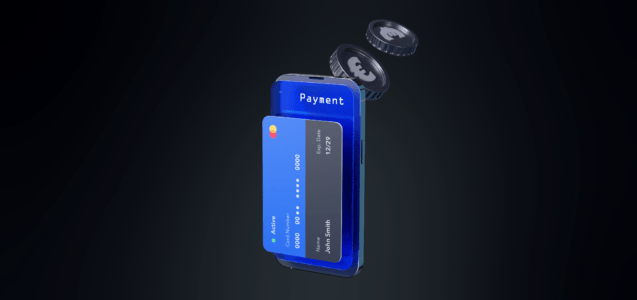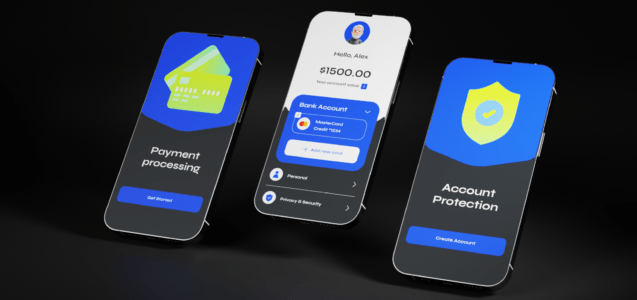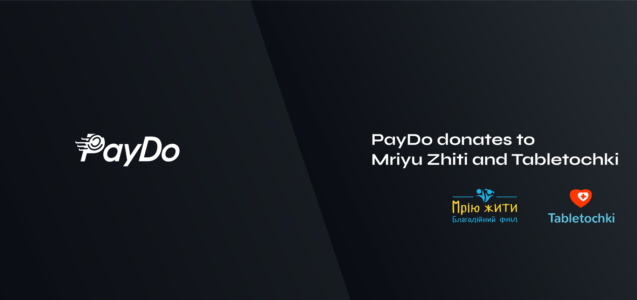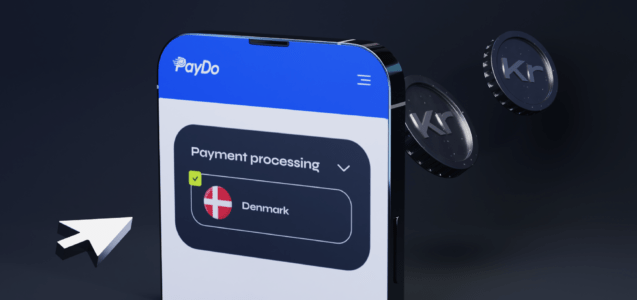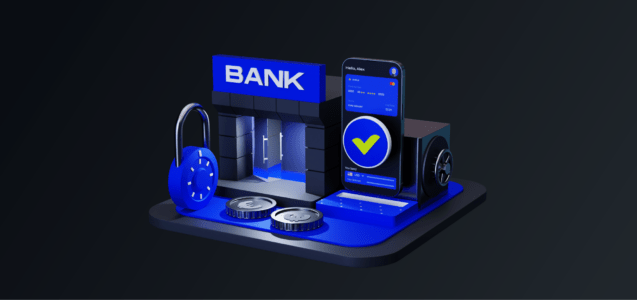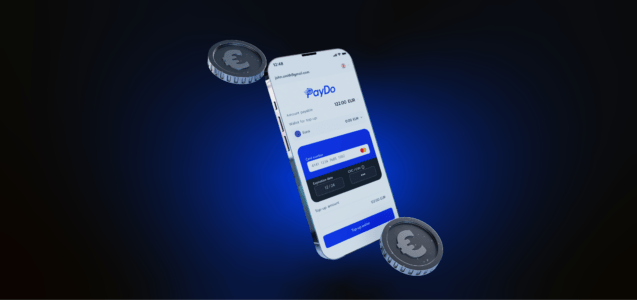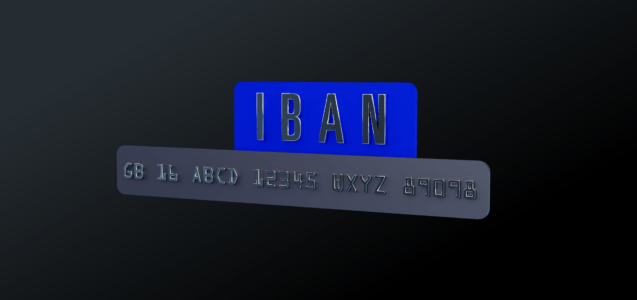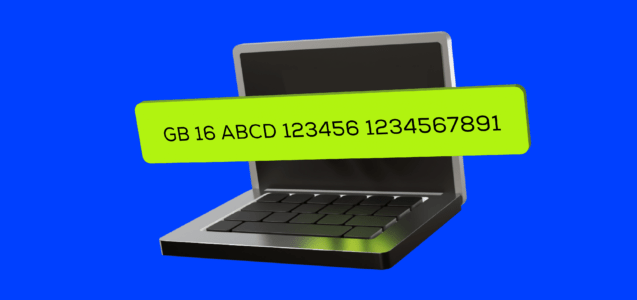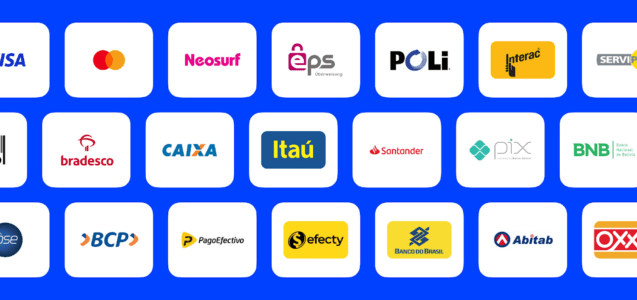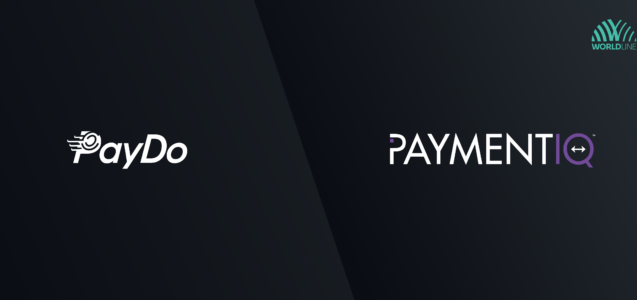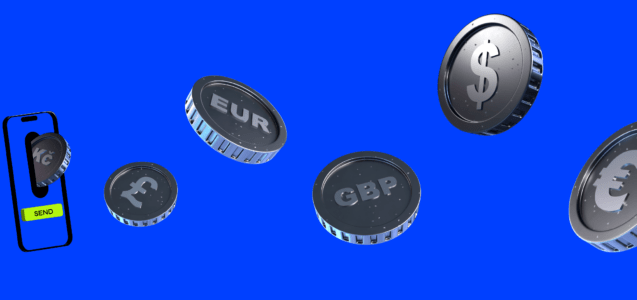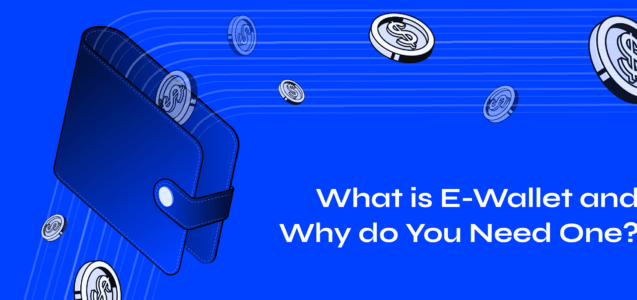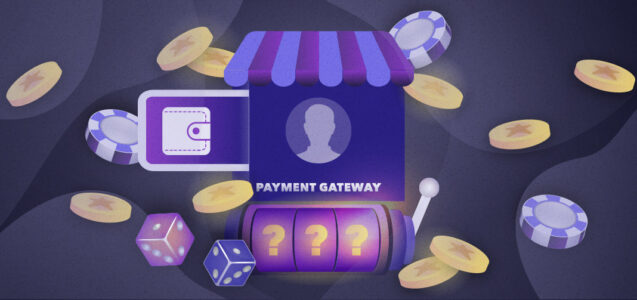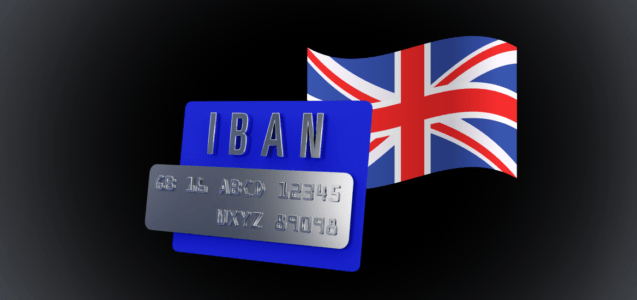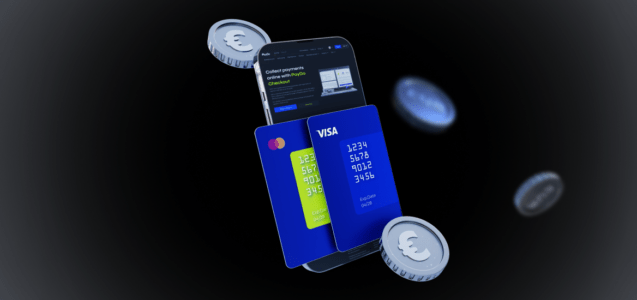Many businesses just want a basic account, but traditional banks can make this hard, especially for high-risk industries. In many cases, if you have an IT company and you go to the bank to open a business account, there is a high chance you will face serious challenges, not like with an EMI. Everything containing words like “digital” is unfamiliar to traditional banks. That is why they try to avoid anything connected to digital at all costs.
This has made online payment platforms popular. They offer simple banking solutions without extra services. And they’re especially helpful for startups and freelancers who might feel overlooked by regular banks.
This article examines the differences between Electronic Money Institutions (EMIs) and old-school banks. As the business world changes, choosing between them depends on what a company needs.
What is an EMI?
An EMI is a financial company. It operates mainly online. This makes it easy to manage your money without needing a traditional bank. Think of it as a virtual wallet. You can store your money safely in it. You can also use it to pay for things or send money to others online.
EMIs have the basic features of sending and receiving money quickly. They also offer extra perks like lower fees and easy-to-use mobile apps. These apps let you check your balance, view your transactions, and budget. They sometimes come with physical or virtual debit cards, just like your bank debit or credit cards, which you can use to shop online or at regular stores.
Even though they work online, EMIs must follow strict rules set by financial authorities. This means your money and personal information are kept safe. They use high-level security measures to protect your account from unauthorized access.
What Services Do EMIs Offer?
Electronic Money Institutions (EMIs) offer many helpful services that make managing your money easier. Here’s a look at some of the things they can do for you:
- Online Account Opening & Management. You can open accounts fully online and keep track of your money through a simple online dashboard, which you can access from your computer or phone. It’s like having a bank in your pocket!
- Instant Money Transfers. Sending money for business purposes is momentary and hassle-free. You can do it at any time, from anywhere.
- Multicurrency Accounts. EMIs can greatly help when dealing with different currencies. They allow you to hold various currencies in one account, making it easier to manage international transactions.
- Payment Cards. Many EMIs offer physical or virtual cards, which you can use just like a regular bank card to shop online or in stores.
- Budgeting Tools. EMIs often offer tools that help you manage your spending. You can set budgets, track your expenses, and get an overview of your finances all in one place.
- Safety Measures. Even though they operate online, EMIs use strong security methods to keep your money and personal details safe.
- Customer Support. If you have any problems or questions, EMIs typically offer customer support through various online channels, making it easy to get help when needed.
All these services are designed to give you a smooth and simple banking experience without visiting a physical bank branch.
Differences between EMIs and Banks
The main difference between EMIs and Banks occurs in the following operational details and features:
| EMIs | Traditional Banks | |
| Platform | Primarily operate online, providing services through websites and mobile apps. | Offer services online and through physical branches where you can meet with banking personnel face-to-face. |
| Services Offered | Focus on offering easy money transfers, multicurrency accounts, and online payment processing. | Provide various services, including loans, mortgages, credit cards, investment products, and more, in addition to basic account management. |
| Accounts Setup | Generally offers a quicker and simpler account setup process online, allowing you to open an account with minimal hassle. | May have a more detailed account setup process requiring various documents and, mostly, in-person visits. |
| Fees | They often charge lower fees, particularly for international transactions, as they have lower operational costs than traditional banks. | Might charge higher fees for certain services due to higher operational and maintenance costs of physical branches. |
| Currency Management | Tend to offer easy management of multiple currencies in one account, a boon for international businesses. | They might have more restrictive policies on holding and managing multiple currencies, sometimes charging higher conversion fees. |
| Customer Support | Offer customer support mainly through online channels, which can be more responsive and available round the clock. | Provide customer support through various channels, including in-person assistance at branches, which some customers prefer for personalized service. |
| Regulation | They undergo comparable routine inspections and adhere to security guidelines such as PSD2, in addition to regulations that oversee the protection of client assets, but the extent of regulation might be lesser compared to traditional banks. | They are subject to stringent regulations and oversight by central banks and other financial regulatory bodies, offering higher security and trust. |
| Personal Financial Management Tools | Often offer integrated budgeting and financial management tools within their platforms. | May offer these tools as well, but sometimes they might be less integrated and user-friendly. |
EMIs offer a new, quick, and often more flexible way to handle money, while traditional banks are known for being dependable and having a wide variety of services that have been developed over a long time.
How Are EMIs Regulated?
EMIs are usually monitored by various financial regulatory bodies to ensure they operate securely and ethically. Even though they primarily operate online, their regulation is not any less stringent than that of traditional banks. Here’s how the regulation of EMIs typically works:
- Before starting operations, EMIs must acquire a license from the financial regulatory authority in their jurisdiction. This process involves meeting specific criteria, including demonstrating that they have robust systems to protect customers’ money and information.
- EMIs must often maintain a certain amount of capital to support their operations. This ensures they have enough resources to function properly and protect their customers’ funds.
- They are required to have measures in place to protect consumers. This includes using secure technology to protect user data and offering transparent information about their services and fees.
- Digital payment platforms must adhere to strict AML and CTF regulations to prevent illegal activities through their platforms. This involves monitoring transactions to detect suspicious activities and reporting them to the relevant authorities.
- EMIs must comply with data protection laws, ensuring the confidentiality and security of customers’ personal information.
- They need mechanisms to handle customer complaints effectively and reasonably resolve disputes.
- EMIs must usually submit regular reports to regulatory bodies detailing their financial performance, customer activity, and adherence to regulatory requirements.
- EMIs might undergo periodic audits and inspections by the regulatory bodies to ensure compliance with all the necessary regulations. This helps check their operations and uphold the authorities’ standards.
- They are expected to have sound risk management policies in place to effectively identify, assess, and manage various risks, including operational, financial, and cyber risks.
Through these regulatory frameworks, EMIs are expected to maintain high professionalism, transparency, and reliability, fostering consumer trust and promoting a stable financial ecosystem.
Pros and Cons of Regular Banks and EMI
| EMIs | Banks | |
| Opening Business Accounts for different industries | Pros: Flexible and welcoming to a broader spectrum of industries, including those considered high-risk. Cons: Might have less experience and expertise handling complex business accounts than traditional banks. | Pros: Established procedures and expertise in handling accounts for various industries, including offering industry-specific perks and services. Cons: Can be restrictive and unwilling to open accounts for non-traditional or high-risk industries. |
| International transactions | Pros: Often offer multi-currency accounts, facilitating smoother international transactions with potentially lower fees. Cons: Sometimes may have less established international partnerships than well-networked traditional banks. | Pros: Generally have well-established international partnerships and networks for smooth international transactions. Cons: Might charge higher fees for international transactions. |
| Time opening account | Pros: Typically faster and less bureaucratic, allowing businesses to start operations promptly. Cons: Speed might sometimes compromise the depth of service customization. | Pros: The thorough process ensures that all necessary details are covered meticulously. Cons: It can be time-consuming with a lot of paperwork and bureaucracy. |
| Physical Presence of UBO/Shareholders eth | Pros: Generally, it does not require the physical presence of UBO/Shareholders, making the process smoother and more convenient. Cons: Less face-to-face interaction might sometimes result in less personalized service. | Pros: Face-to-face interaction allows for more personalized service and relationship building. Cons: Requires physical presence, which might not be convenient for international clients. |
| Pay employees in their own currencies | Pros: Easier to manage payroll in multiple currencies, providing comfort and convenience for international teams. Cons: Exchange rate fluctuations might sometimes affect the exact payment amounts. | Pros: Stable and reliable platforms for handling international payroll, albeit sometimes with higher fees. Cons: Could have higher fees and more complex processes for multi-currency payroll. |
| Dedicated account manager | Pros: Some EMIs offer dedicated account managers for personalized service, albeit usually for higher-tier accounts. Cons: The quality of service might sometimes be less compared to premium banking services. | Pros: Often provide dedicated account managers offering personalized and expert service. Cons: This service might be reserved for high-value or premium customers, excluding smaller businesses. |
What products does PayDo EMI provide to clients?
PayDo is a payment ecosystem offering a wide range of products, including the following:
- PayDo IBAN:
- 35 currencies
- 150+ destinations
- Instant currency exchange
- Review the received/sent transfers via the dashboard
- Create balance statements (reports)
- Straightforward and user-friendly account management.
- Nine payment schemes
- SEPA
- SEPA instant
- Cross-border
- Fedwire
- Target 2
- FasterPayments
- Chaps
- Backs
- Kronos2
- PayDo Checkout:
- 350+ payment methods for payers
- 170+ supported countries
- Unlimited websites for 1 account
- All-in-one contract and integration
- Smart payment selection
- One-click payments
- Chargeback protection
- Routing & Cascading
- Built-in anti-fraud
- 3D Secure
- PCI-DSS Level 1 certified
- PayDo Mass Payouts.
- 150 countries
- No hidden fees
- Secure sending on time and in full
- Mass payments to a large number of payees (employees, etc.)
- PayDo Pusiness Account:
2. Personal Account
PayDo offers solutions for individuals. These are the following:
- Cross-Border Transfers. Users can send and receive international transfers, hold 12+ currencies, and make purchases on thousands of supported sites.
- Payment Schemes. Payments in around 150 countries in over 12 currencies, including Euro, GBP, and AUD via SEPA, Cross-border, and Faster Payments.
- Dedicated IBANs. Available as GBP account details and multicurrency account details.
- Paying at Checkout. Make purchases on websites supporting PayDo checkout.
- Top-Up Methods:
- Bank Transfer
- Credit Cards (VISA and Mastercard)
- Alternative Payment Methods (APMs)
- Prepaid cards
- Cash-based payments
- E-wallets (PayDo wallet)
- Mobile wallets
- Apple Pay
- Google Pay
- Additional Services. Internal transfers between PayDo users, real-time reporting, and instant money exchange at favorable rates.
- Security. Fund safeguarding in segregated client accounts, 3D Secure (3DS) technology for card transactions.
- Safeguarding means we keep your money in separate, secure accounts that are not mixed with our funds. This ensures your money is always protected and available whenever you need it.
- PayDo Corporate Cards
- VISA Euro Cards. Available for online and contactless payments via Apple Pay, Google Pay, and Samsung Pay.
- Linked to Accounts. These cards will be directly linked to user accounts for quick access to funds.
Moreover, PayDo has a variety of products to meet different business needs. Our Checkout service, for example, makes the payment process easier, providing a better customer experience and helping the business grow. The Mass Payments service is another helpful tool, making bulk payment processes quicker and less effort-intensive.
PayDo also offers services to individuals with their Personal Accounts, which have many benefits. This means that PayDo can serve various financial needs of different customers.
And importantly, when security is a top concern, PayDo has put strong security measures in place to safeguard clients’ financial interests, showcasing their dedication to creating a safe and reliable space for financial transactions.
Final Remarks
As businesses grow globally, many no longer need all the services from traditional banks. Instead, they’re turning to EMIs for simpler and faster payment solutions. While banks are still valued, EMIs provide modern and flexible options.
Ready to start with one of the top-tier EMIs out there?
Create a PayDo Personal or PayDo Business Account for individual or corporate purposes. Tap into the convenience of financial transactions right away.


